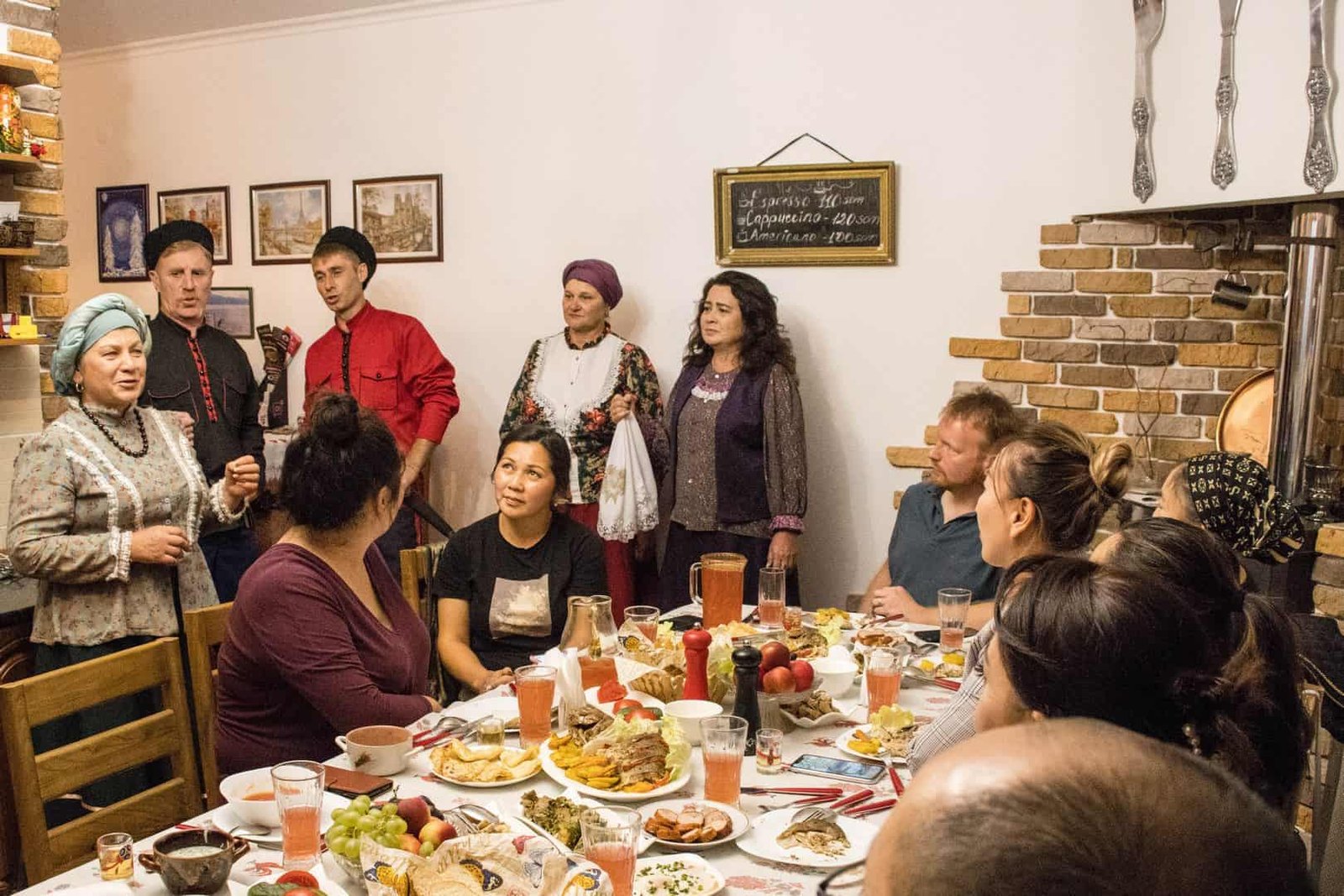Tips to Travel More Sustainably in Karakol
Respecting Cultures, Protecting Environments
Tucked between the eastern shore of Lake Issyk-Kul and the Tian Shan mountains, Karakol is a unique blend of scenic beauty, rich culture, and outdoor adventure.
Founded in 1869, this historic town has grown into a multicultural hub where Dungan, Uighur, Russian, and Kyrgyz communities live side by side. Their influences shape Karakol’s vibrant cuisine, architecture, and traditions.
Adventurers come for the trekking and skiing, with highlights like Ala-Kul Lake and Jeti-Ögüz Valley. In town, museums, bazaars, and delicious food experiences offer a taste of local life.
Whether you're hiking mountain trails or sharing a meal in a yurt, Karakol invites you to slow down, connect, and travel with purpose.
How to Travel More Responsibly and Sustainably
Minimize your carbon footprint
Choose a transportation option with a lower carbon footprint. Choosing a bus or a shared taxi over the plane to come from Bishkek to Karakol will significantly reduce your carbon footprint and while the road may be a bit bumpy at times, you will get the most beautiful views of Issyk-Kul Lake. In summer, you could also take the train to Balykchy and take a bus or shared taxi from there to Karakol.
Choose Stays and Tours That Care
Book accommodations and tours with sustainability certification (like Travelife or Good Travel Seal). These providers take measures to minimize their environmental footprint and support local jobs and traditions.



Bring a Bottle, Skip the Plastic
Help reduce plastic waste by bringing your own bottle. You can refill it at many guesthouses, restaurants, and trusted refill stations around town (make sure you have 1,3 som coins). You can also ask cafés if they are able to refill your bottle — most are happy to help!
Move smartly
Take public transport, walk, or share rides to reduce your carbon footprint and enjoy more authentic local experiences.
Want to explore on two wheels? Ecotrek and Kyrgyz Life offer bike rentals. Just write to us, and we’ll be happy to check availability for you!
Bonus: You’ll meet friendly locals and see Karakol from a new perspective 🙂
Eat Local, Shop Local
Most cafés, restaurants, and artisan shops in Karakol are family-run. By supporting them, your money stays in the community and helps sustain the people, culture, and traditions that make Karakol truly unique.
Reduce and Recycle your Waste
Reduce your waste whenever possible by bringing a reusable water bottle, coffee mug, lunchbox, or shopping bags.
When you do produce waste, sort plastics, paper, and metals using public bins or your guesthouse’s waste sorting system.
Waste remains a significant challenge in Karakol, with limited treatment and recycling facilities. Improper disposal leads to litter, pollution, and harm to local wildlife — and spoils the natural beauty that brings visitors here. Let’s all do our part!
Respect Nature
- Stick to marked trails
- Avoid picking flowers or disturbing wildlife
- Carry your trash and reduce single-use items
- Do not wash with soap in rivers and lakes to avoid water pollution
- Campfires? Best to skip them — our fragile alpine ecosystems need your care.
Learn more with the Leave No Trace 7 Principles
Connect with Culture
- Learn a few local phrases like “Рахмат” - "Rakhmat" (Thank you)
- Dress modestly in villages and religious sites
- Ask before taking pictures of people — especially elders and children
Small gestures go a long way in building respect and friendship.
Hotel Tips
- Use water and energy mindfully
- Respect quiet hours and shared spaces
- Inform staff of dietary needs — local food can surprise you!
At Historical and/or Religious Sites
- Follow posted rules
- Avoid touching exhibits
- Check if taking photos and videos is allowed and avoid using flash
- Adapt your interactions and clothing — especially at religious sites loud interactions or revealing clothes may not be appropriate







